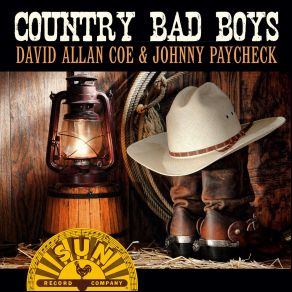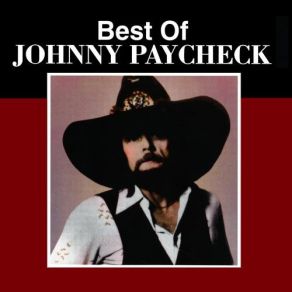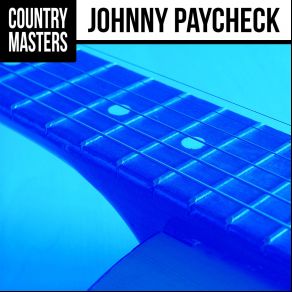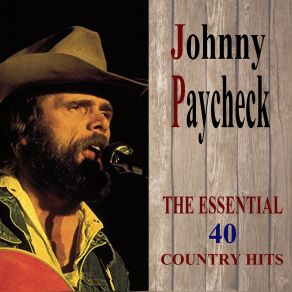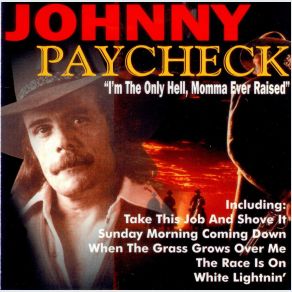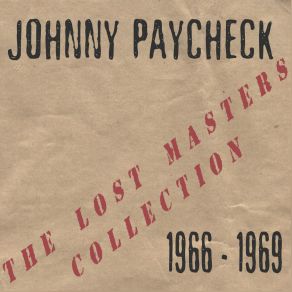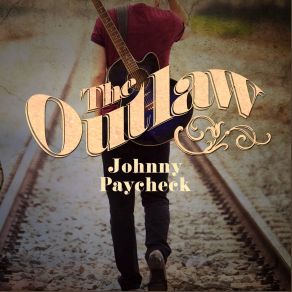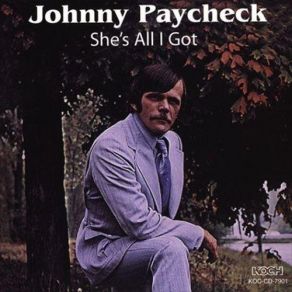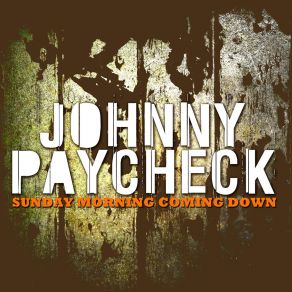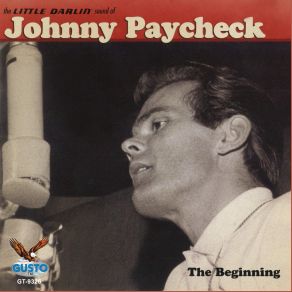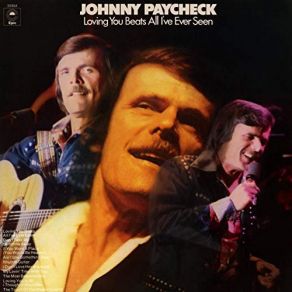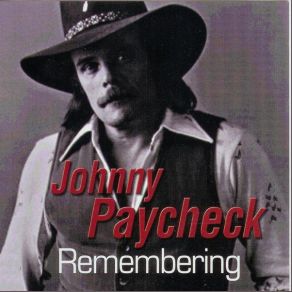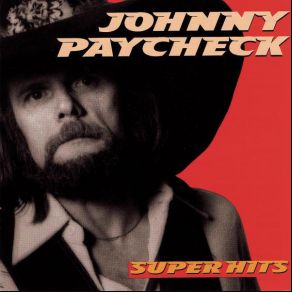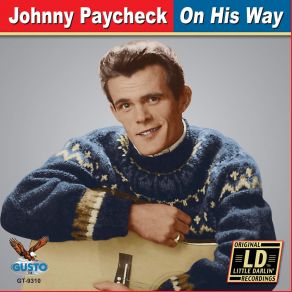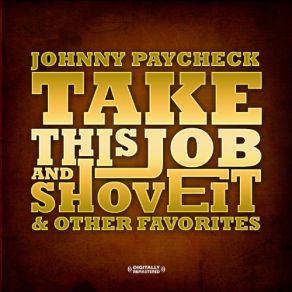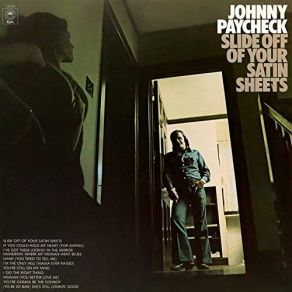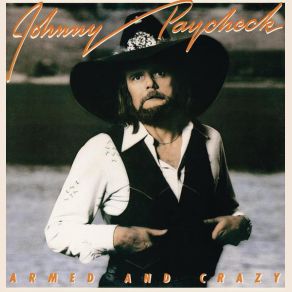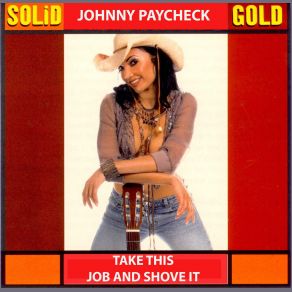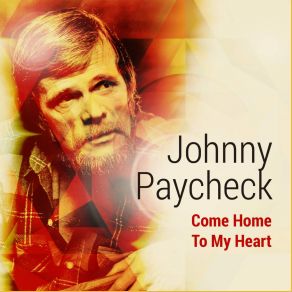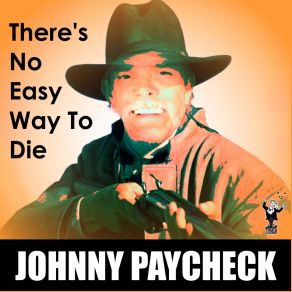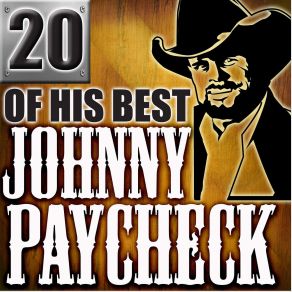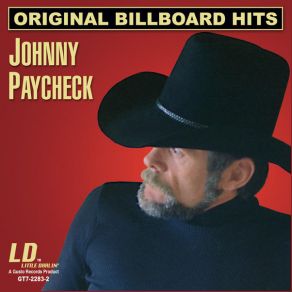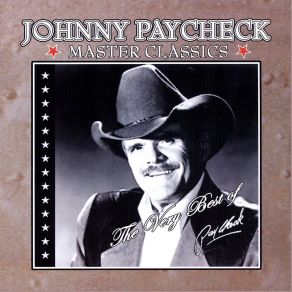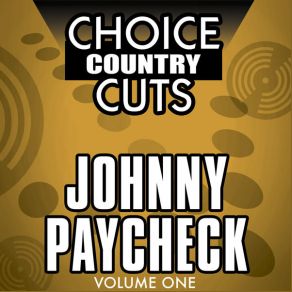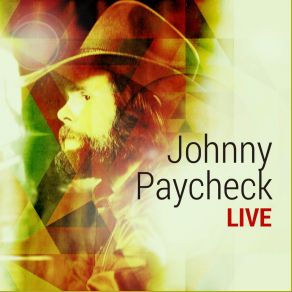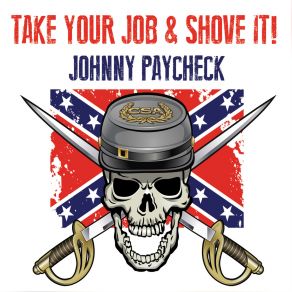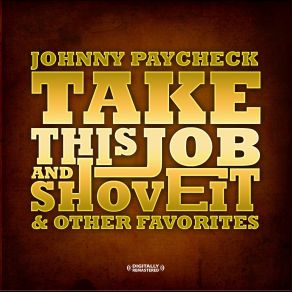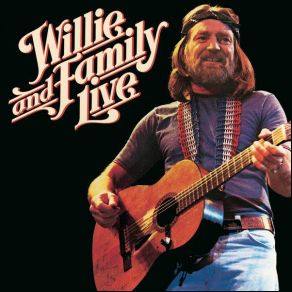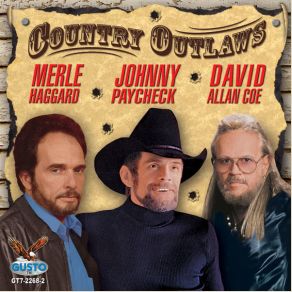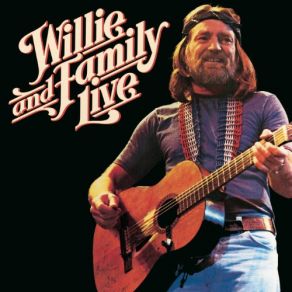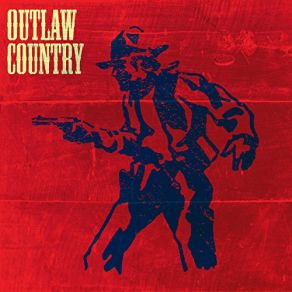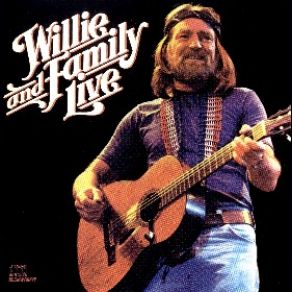Johnny Paycheck
Wikimp3 information about the music of Johnny Paycheck. On our website we have 70 albums and 70 collections of artist Johnny Paycheck. You can find useful information and download songs of this artist. We also know that Johnny Paycheck represents Country genres.
Biography
[Edit]The first time that many people ever heard of Johnny Paycheck was in 1977, when his "Take This Job and Shove It" inspired one-man wildcat strikes all over America. The next time was in 1985, when he was arrested for shooting a man at a bar in Hillsboro, OH. That Paycheck is remembered for a fairly amusical novelty song and a violent crime (for which he spent two years in prison) is a shame, for it just so happens that he is one of the mightiest honky tonkers of his time. Born and raised in Greenfield, OH, Paycheck was performing in talent contests by the age of nine and riding the rails as a drifter by the time he turned 15. After a Navy stint landed him in the brig for two years, he arrived in Nashville, where he performed in the bands of Porter Wagoner, Faron Young, Ray Price, and George Jones. He recorded several singles under the name Donny Young, then, in 1965, cut his first sides as Johnny Paycheck for the Hilltop label. A year later, he and gadfly producer Aubrey Mayhew started the Little Darlin' label, for which Paycheck recorded his greatest work. Marked by Lloyd Green's knockout steel guitar and Paycheck's broad, resonant vocals (not to mention his rounder's sense of humor) his Little Darlin' records of the 1960s have since become cult favorites. After splitting with Mayhew (and after running his life into the gutter) Paycheck made a celebrated comeback on Epic in the 1970s. "Take This Job and Shove It" was the most famous result, though ballads like "She's All I Got" and "Someone to Give My Love To" are far more indicative of his stylistic range.
Born Donald Lytle, Paycheck began playing guitar when he was six, and within three years, he was performing talent contests across the state. When he was 15, he ran away from home, hitchhiking, and hoboing his away across the country, singing in honky tonks and clubs along the way. By his late teens, he had joined the Navy, but while he was serving, he assaulted a superior officer and was convicted of court martial. As a result, he spent two years in the brig. Upon his release, he moved to Nashville, where made the acquaintance of Buddy Killen at Decca Records, who offered him a contract. At Decca, Paycheck released two rockabilly singles on the label under the name Donny Young; neither were hits. Shortly afterward, he moved to Mercury, where he released two country singles, which were also failures. By that time, he had begun supporting other musicians, playing bass and occasionally steel guitar with Porter Wagoner, Faron Young, and Ray Price. He frequently moved between employers because of his short-fused temper. Paycheck finally found his match in George Jones. He stayed with Jones for four years, fronting the Jones Boys between 1962 and 1966, and singing backup on George's hits "I'm a People," "The Race Is On," and "Love Bug."
Toward the end of his stint with Jones, Donald Lytle refashioned himself as Johnny Paycheck, taking his name from a Chicago heavyweight boxer. Late in 1965, he relaunched his solo career with the assistance of producer Aubrey Mayhew, who produced a pair of singles — "A-11" and "Heartbreak Tennessee" — for Hilltop Records. Though it only charted at number 26, "A-11" caused a sensation within the country community, earning several Grammy nominations as well as reviews that compared Paycheck to his mentor, Jones. In 1966, he and Mayhew formed Little Darlin' Records, primarily designing the label to promote Paycheck, but also recording Jeannie C. Riley, Bobby Helms, and Lloyd Green. That summer, "The Lovin' Machine" became Paycheck's first Top Ten hit. Also that year, he wrote Tammy Wynette's first hit, "Apartment #9," with Bobby Austin and Fuzzy Owen; Paycheck also wrote Ray Price's number three hit "Touch My Heart."
All of Paycheck's recordings for Little Darlin' Records rank among his grittiest, hardest country, but they weren't necessarily big hits. Between 1967 and 1969, Paycheck had eight more hit singles, with each record progressively charting at a lower position than its predecessor — "Motel Time Again" reached number 13 in early 1967, while "If I'm Gonna Sink" climbed to number 73 in late 1968. Though "Wherever You Are" showed signs of a comeback in the summer of 1969, peaking at number 31, the label went bankrupt shortly after its release, partially due to Paycheck's declining commercial performance, partially due to his heavy drinking and erratic behavior. Over the course of the next year, he moved to California and sunk deeply into substance abuse. Meanwhile, Billy Sherrill at Epic Records had been searching for Paycheck with the hopes of producing his records. The label finally tracked him down in 1971 and offered him a contract, provided that he cleaned himself up. Paycheck accepted the offer and, with Sherrill's assistance, kicked his addictions.
Like many of Sherrill's records of the early '70s, his Paycheck recordings were heavily produced and often layered with stings. Though this was a shift from the hardcore country that Paycheck made on Little Darlin', the new approach was a hit — his debut single for the label, "She's All I Got," became a number two hit upon its fall 1971 release. It was quickly followed by another Top Ten hit, "Someone to Give My Love To," and Paycheck was finally becoming a star. During the next four years, he had 12 additional hit singles — including 1973's Top Ten singles "Something About You I Love" and "Mr. Lovemaker," and 1974's "For a Minute There" — with the more accessible, pop-oriented songs Sherrill crafted for him, but Paycheck's wild ways hadn't changed all that much. In 1972, he was convicted of check forgery and, in 1976, was saddled with a paternity suit, tax problems, and bankruptcy. Accordingly, he shifted his musical style in the mid-'70s to put him in step with the renegade outlaw country movement.
Paycheck's first outlaw album, 1976's 11 Months and 29 Days (which happened to be the length of his suspended sentence for passing a bad check), featured a photo of him in a jail cell on the cover, signalling his change of direction. Initially, his outlaw records weren't hits, but early in 1977 he returned to the Top Ten with a pair of Top Ten singles, "Slide Off of Your Satin Sheets" and "I'm the Only Hell (Mama Ever Raised)." Later that year, he released his cover of David Allan Coe's "Take This Job and Shove It," which became his biggest hit, spending two weeks at number one; its B-side, "Colorado Kool-Aid," also charted at number 50. Soon, Paycheck's records were becoming near-parodies of his lifestyle, as the title "Me and the I.R.S." and "D.O.A. (Drunk on Arrival)" indicated. Nevertheless, he stayed at the top of the charts, with "Friend, Lover, Wife" and "Mabellene" both reaching number seven in late 1978 and early 1979.
Shortly after the twin success of those singles, his career began to crumble due to his excessive, violent behavior. In 1979, his former manager Glenn Ferguson began a prolonged and difficult legal battle. In 1981, a flight attendant for Frontier Airlines sued him for slander after he began a fight on a plane. The following year, he was arrested for alleged rape. The charges were later reduced and he was fined, but by that point, Epic had had enough and dropped him from the label. Paycheck moved over to AMI, where he had a number of small hit singles between 1984 and 1985. Later in 1985, he had a barroom brawl with a stranger in Hillsboro, OH, that ended with Paycheck shooting and injuring his opponent. The singer was arrested for aggravated assault and spent the next four years appealing the sentence while he recorded for Mercury Records. None of his singles for the label reached the Top 40, and he was dropped from the label in 1987. He spent 1988 at Desperado Records before signing with Damascus the following year, after his conversion to Christianity.
In 1989, Paycheck's appeals had expired and he was sentenced to the Chillicothe Correctional Institute. He spent two years at the prison, even performing a concert with Merle Haggard at the jail during his stint, before being released on parole in January 1991. Following his release, Paycheck kept a low profile, playing shows in Branson, MO, and recording for the small label Playback Records. After battling diabetes and emphysema for a number of years, Paycheck passed away in February 2003. He was 64.
Title: I'm the Only Hell Mama Ever Raised
Artist: George Jones, Johnny Paycheck
Genre: Country, Outlaw Country
Title: Country Bad Boys-David Allan Coe and Johnny Paycheck
Artist: David Allan Coe, Johnny Paycheck
Genre: Pop
Title: Top Hits: Johnny Paycheck - Take This Job and Shove It
Artist: Johnny Paycheck
Genre: Country, Outlaw Country
Title: Hellraisin' Cowboy - Best of Johnny Paycheck
Artist: Johnny Paycheck
Genre: Country, Outlaw Country
Title: Sunday Morning Coming Down - Single
Artist: Johnny Paycheck
Genre: Country, Outlaw Country, Pop
Title: Greatest Hits (Re-Recorded Versions)
Artist: Johnny Paycheck
Genre: Rock, Country, Outlaw Country
Title: On His Way (Original Little Darlin' Records Recordings)
Artist: Johnny Paycheck
Genre: Country
Title: Choice Country Cuts: Johnny Paycheck, Vol. 3 (Re-Recorded Versions)
Artist: Johnny Paycheck
Genre: Country
Title: Mamas Don't Let Your Babies Grow up to Be Cowboys - Single
Artist: Johnny Paycheck
Genre: Country
Title: Take This Job And Shove It & Other Favorites (Digitally Remastered)
Artist: Johnny Paycheck
Genre: Country
Title: The Very Best of Paycheck (Re-Recorded Versions)
Artist: Johnny Paycheck
Genre: Country, Outlaw Country
Title: Time Life Presents: Johnny Paycheck: The Starpointe Recordings
Artist: Johnny Paycheck
Genre: Country
Title: All-Time Greatest Hits: Johnny Paycheck (Re-Recorded Versions)
Artist: Johnny Paycheck
Genre: Country, Outlaw Country
Title: Choice Country Cuts: Johnny Paycheck (Re-Recorded Versions)
Artist: Johnny Paycheck
Genre: Country, Outlaw Country
Title: Johnny Paycheck: A Country Legend (Re-Recorded Versions)
Artist: Johnny Paycheck
Genre: Country, Outlaw Country
Title: All Time Greatest Hits
Artist: Johnny Paycheck
Genre: Rock, Rock & Roll, Country, Outlaw Country
Title: Studio 102 Essentials: Johnny Paycheck
Artist: Johnny Paycheck
Genre: Country, Outlaw Country
Title: Take This Job and Shove It & Other Favorites (Remastered)
Artist: Johnny Paycheck
Genre: Rock, Country, Outlaw Country, Pop
Collections
Title: Made in America - 70s Number One Hits
Genre: Rock
Title: Songs About Boys
Genre: Pop
Title: True Grit
Genre: Theatre/Soundtrack
Title: Road Music
Genre: Rock
Title: Country Big Hits
Genre: Country
Title: This Is Country Superstars (Re-Recorded Versions)
Genre: Country
Title: Country Songs You Remember
Genre: Country
Title: Essential Songs for Mom & Dad
Genre: Pop
Title: Country Music You Love
Genre: Country
Title: Story Songs 1970-1980
Genre: Pop
Title: Hipster Lounge - Too Cool for School
Genre: Alternative
Title: 100 '70s Hits (Re-Recorded Versions)
Genre: Rock
Title: 7 Hours of Super Hits of the '70s (Re-Recorded Versions)
Genre: Pop
Title: Vintage Mother's Day
Genre: Pop
Title: 21 Country Hits
Genre: Country
Title: This Is Trucker's Jukebox Anthems
Genre: Country
Title: Trucker's Greatest Hits
Genre: Rock
Title: 80's Country Legends - American Classics
Genre: Country
Title: 20 Country Oldies
Genre: Country
Title: 70's Country Legends - American Classics
Genre: Country
Title: Mother's Day - Greatest Collection
Genre: Theatre/Soundtrack
Title: Ultimate '70s Hits
Title: 100 Hits: Country Favorites
Genre: Country
Title: The Number 1 Country Collection
Genre: Country
Title: Country Heaven
Genre: Country
Title: Country Drinking Songs
Genre: Country
Title: This Is Country Music
Genre: Country
Title: The Ultimate Movie Soundtrack (Re-Recorded Versions)
Genre: Pop
Title: 50 Country Hits Of The '70s & '80s
Genre: Country
Title: Platinum Trax All Time Country Greats
Genre: Country
Title: Country Loving Memories, Vol.1
Genre: Country
Title: Outlaws Super Hits
Genre: Country
Title: Ready, Set.. Country!
Genre: Country
Title: I'm So Country
Genre: Country
Title: Country Kings, Volume Six
Genre: Country
Title: Country Kings, Volume Five
Genre: Country
Title: Rock N' Southern Rebels
Genre: Rock
Title: The Golden Treasure Series Of Country Legends
Genre: Country
Title: Country Story Time
Genre: Country
Title: Country Western Best Tunes
Genre: Country
Title: Riding the Country Roads
Title: Country Western Best Tunes
Genre: Country
Title: Heartwarming Country Tunes
Genre: Country
Title: Country and Western, Vol. 4
Genre: Country
Title: Golden Country, Vol. 4: Love Me Tender
Genre: Country
Title: Country Western Classics
Genre: Country
Title: Golden Country, Vol. 2 - From a Jack to a King
Genre: Country
Title: Superstar Session
Genre: Country
Title: Country and Western, Vol. 2
Genre: Country
Title: Country Heartaches, Country Heartbreaks
Genre: Country
Title: Classic Country & Western
Genre: Country
Title: Outlaw Country
Title: Country for the Buck
Genre: Country
Title: Southern Gospel At Its Best
Title: King of the Road - Country Driving Songs
Genre: Country
Title: Truckin' Country
Genre: Country
Title: Country Love Songs (Re-Recorded Version)
Genre: Country
Title: Be My Valentine - Country's Greatest Love Songs
Genre: Country
Featuring albums
Title: All-Time Country Hits - 40 Classic Hits From The 50's, 60's And 70's
Artist: Various Artists
Genre: Country
Title: Willie Nelson & Friends
Artist: Willie Nelson & Friends
Genre: Rock, Country, Country Rock, Progressive Country , Pop, Pop Rock
Title: Outlaw Country
Artist: Willie Nelson, Merle Haggard, Johnny Paycheck Waylon Jennings
Genre: Country
Title: Karaoke - Singing to the Hits: Country Gents (Rerecorded Version)
Artist: Various Artists
Genre: Country
Title: Unofficial Soundtrack First Season
Artist: My Name Is Earl
Genre: Rock, Pop, Theatre/Soundtrack
Title: 20th Century Country: From a Jack to a King, Vol. 2 (Re-recorded Version)
Artist: Various Artists
Genre: Country



